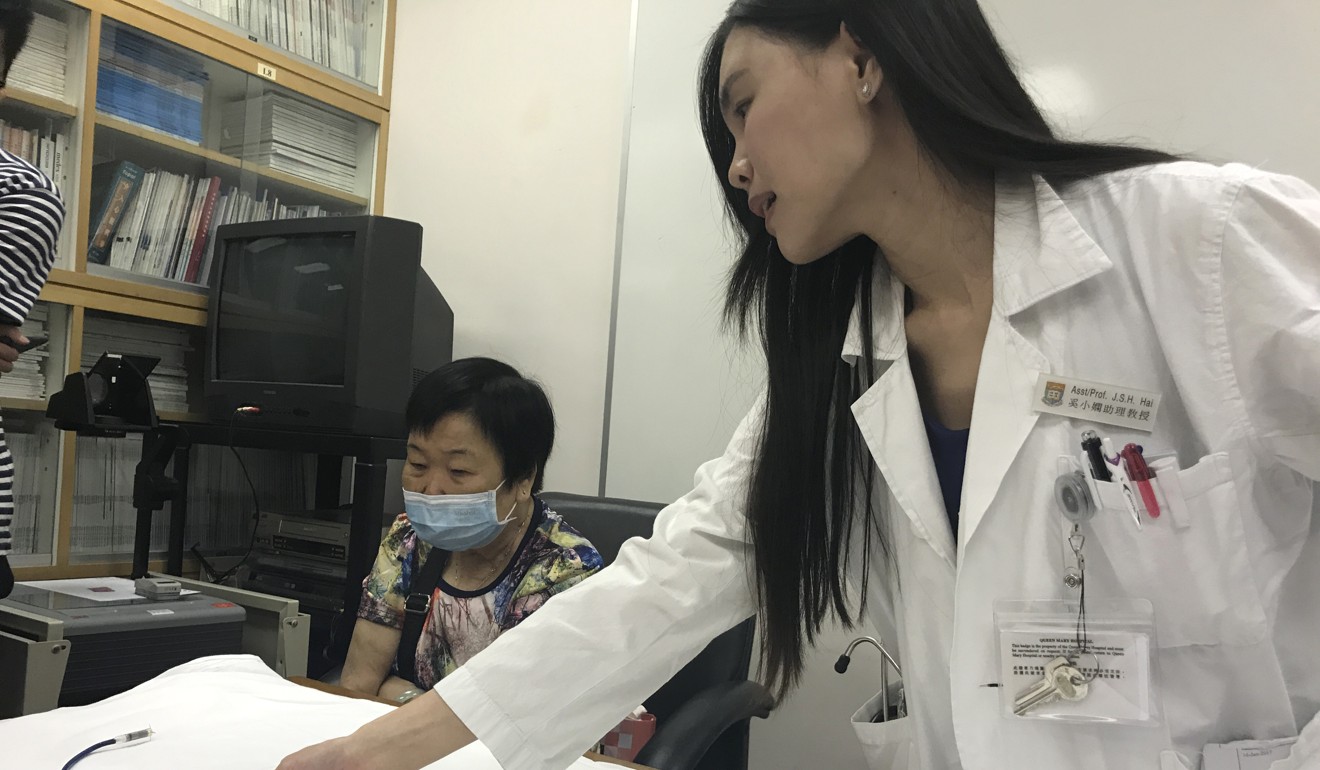
Wireless revolution for Hong Kong heart patients, but at a price
Smaller pacemakers offer benefits but cost HK$95,000 and are not for everyone
A new type of wireless pacemaker is helping heart patients overcome the psychological and physical challenges associated with conventional models, but the benefits come at a price – HK$95,000 a time.
Dr Lau Chu-pak, specialist in cardiology, said pacemakers were given to people experiencing unusually slow heartbeats, under 60 beats a minute, or lulls in their heart beat.
Lau said the new, smaller pacemaker, first introduced in the city in 2015, was inserted by microsurgery via the patient’s thigh, eliminating the risk of infection from a wound and wire decay.
US scientists use gene therapy to create biological heart pacemaker
Also, reducing the bulkiness of traditional pacemakers and the scarring created when inserting the devices removed the constant psychological reminder of the patient’s ailment.
Lau said the new model thus far boasted a 99.2 per cent success rate.
One patient, 74-year-old Ms Ng, was first fitted with a pacemaker in 1993. “The traditional pacemaker restricted my movements,” she said. “It made me feel heavy, like something was constantly weighing me down.”
After complications in 2014 and the potential need for major wire removal surgery, Ng chose to be fitted with the new pacemaker in February this year.
The new pacemaker doesn’t inhibit my activities
“The new pacemaker doesn’t inhibit my activities,” she said. “The old ones came with a scar which made me always aware that I had a problem, but the new pacemaker lets me forget.”
Ng can now go on walks and resume her daily activities without feeling unnaturally dizzy, experience breathing difficulties or have swollen legs.
In Hong Kong, approximately 200 out of one million people require pacemakers, with patients typically aged 60 or above. A total of 160 cases in both public and private hospitals have been referred to the new device over the past two years.
Dr Jo Jo Hai Siu-han, clinical assistant professor at the University of Hong Kong, said: “The new pacemaker is recommended if the case is more severe, or if the patient has other health complications.”
While public hospitals fund the surgery, the new pacemakers cost HK$95,000 compared with an average of HK$40,000 for the old ones. And they don’t last forever.

“The pacemaker works for eight to 10 years, and then a new one must be inserted,” Lau said.
One drawback with the wireless models is that once fitted they cannot be removed. For this reason younger patients are recommended to opt for the older device.
“If a patient is 30 years old, they will have five or six pacemakers inside their heart by the time they are 80,” Hai said.
Patients like Ng must ultimately decide whether the benefits outweigh the costs.

